Surprise: ‘Near me’ brand names don’t rank higher for ‘near me’ searches
'Near me' searches continue to grow, but the tactic of optimizing for these terms can now do more harm than good for local search rankings.
A recent Think With Google article suggests that optimizing for “near me” searches will pay out a bonanza in extra good rankings and qualified referral traffic.
“Near me” has been one of the term optimizations that many of us have recommended for local SEO benefit for years now.
But, there are reasons to think this tactic has completely jumped the shark, making it a waste of time.
And for those who optimized by creating a business name around the phrase, Google’s changes have essentially destroyed their brand name search in Maps.
‘Open now near me’ searches up 400%
In March, Bill Ready, president of commerce, payments and next billion users at Google, penned 2022 Retail Marketing Guide: Drive foot traffic and in-store sales. This part grabbed my attention:
“Searches for “open now near me” have grown globally by over 400% YOY.”
“Near me” searches are queries for local products or services that include qualifier terms like “near me” when consumers want to narrow down to see the businesses closest to them only or primarily.
Also, during its Q1 earnings call, Google revealed that Maps searches for [shopping near me] were up 100% globally year-over-year.
“Open now” is a similar type of qualifier that is often used outside of the typical 9-to-5 timeframe or used later at night, such as to find restaurants that are still open, or clinics and other types of stores that stay open late at night.
While searches for businesses “near me” or “open now” separately are used more frequently, it is not surprising that both qualifying phrases might be used simultaneously in queries.
The rise of ‘near me’ search optimization
If you’ve worked in local SEO for a good length of time, this isn’t particularly surprising. We’ve known for about a decade that “near me” search optimization held huge potential for many types of businesses in many markets.
The 400% YOY growth rate is eye-opening, indicating that consumers have increasingly grown to expect that these qualifiers will help them locate more precisely what they need.
The rising use of mobile devices when conducting searches has influenced the “near me” trend a lot and has helped to drive overall increases in the volume of local searches.
Google Trends demonstrates the increasing popularity of “near me” searches, which is what Ready based his statement upon:

The related searches including “open now” also show considerable growth over time:

Along with others in the industry, I strongly recommended that local businesses optimize for their ideal keywords in combination with “near me” phrases. There are a number of these types of phrases that are used by consumers, including:
- “around here”
- “nearby”
- “close by”
- “close to me”
- “local”
I also performed optimizations using these phrases on behalf of clients. In one case (a specialized attorney), keyword research showed that no other competing attorneys in the niche were using “near me” phrases. I created an optimized page for his “near me” specialization phrase. His referrals increased by about 20%.
Optimizing for “near me” phrases was a solid gold recommendation for a long time in local search. It was nearly a slam-dunk.
Why?
Because when you had a website and webpages that included a page or pages for “near me,” along with the industry business category name, for many businesses where people wanted local providers this would connect local consumers with webpages and Google Maps boxes for those businesses that had optimized for it. As a great many businesses were clueless about the optimization, this provided a stealth marketing weapon that virtually guaranteed valuable referral increases.
The rise of ‘near me’ businesses
In the last few years, several businesses have taken this optimization to the next level.
How?
By engineering their business name itself to include “near me”.
If you check the business registration databases across the U.S., you quickly find there are a number of businesses across the U.S. that have included “near me” into their official business names.
This includes many business categories beyond just a few of the more predictable kinds (e.g., locksmiths).
Clearly, many companies took the idea of optimizing for “near me” queries and made it into a core piece of their strategy that could be expected to return a lot of referrals.
With all of their online collateral materials associating “near me” with their business, how could they not rank for these searches?
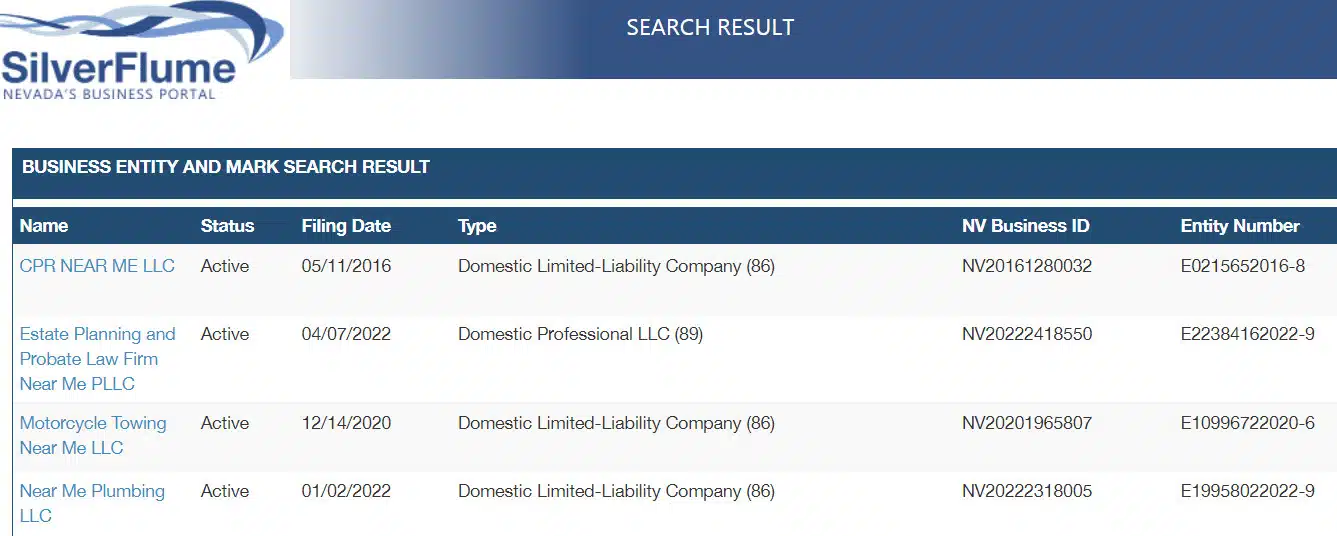
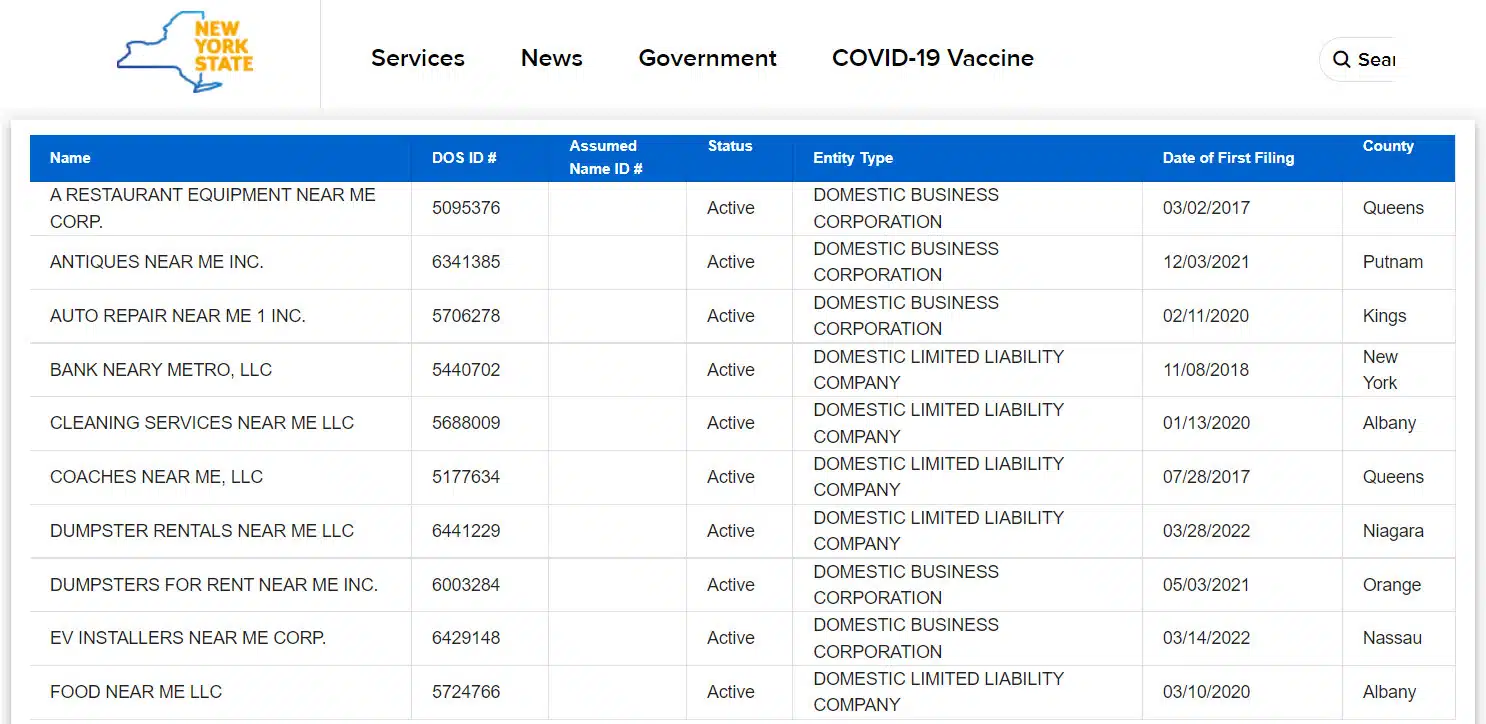
The examples are hilarious:

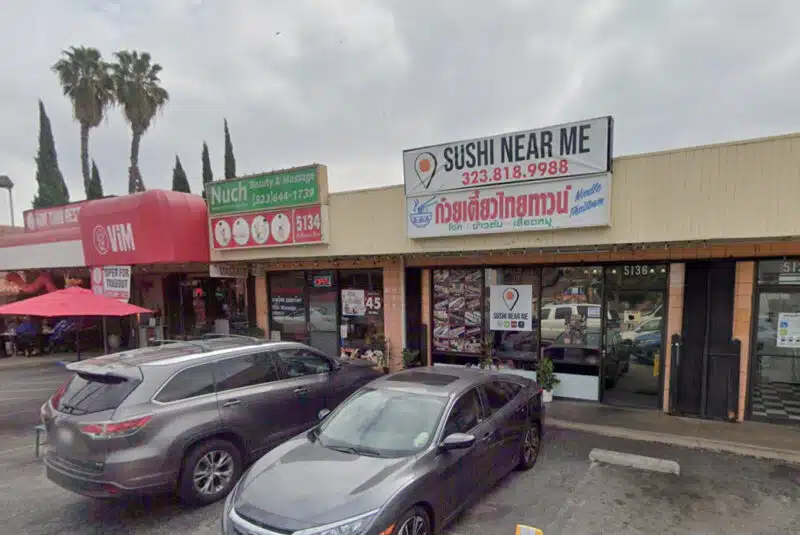

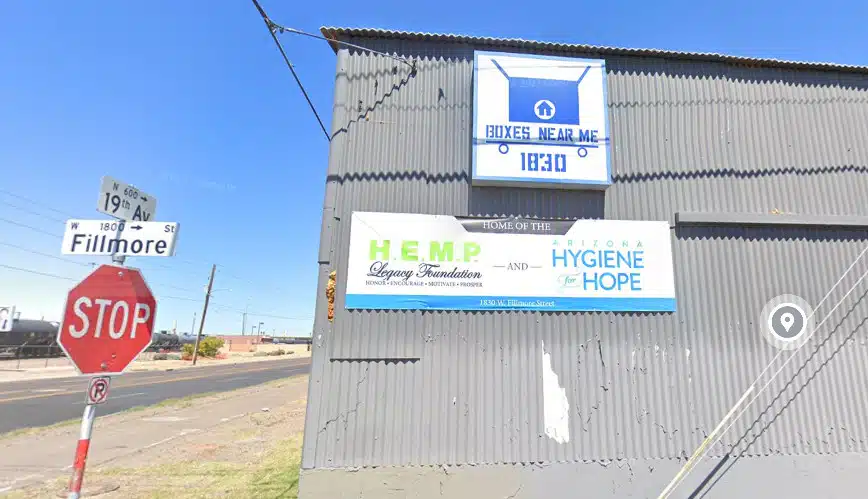
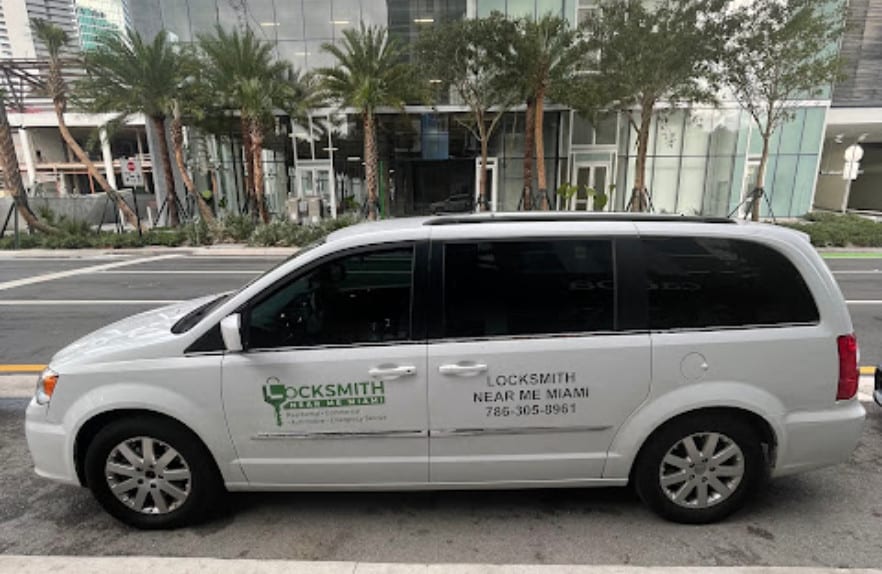
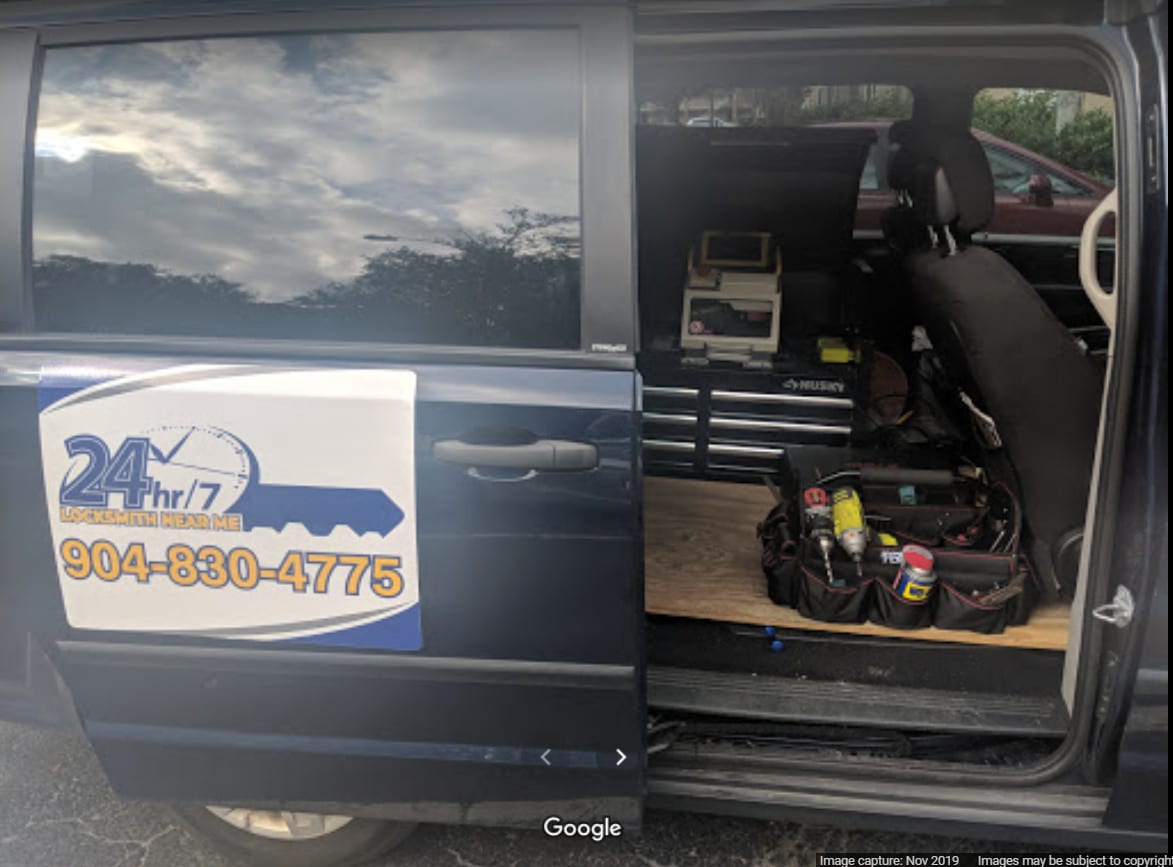

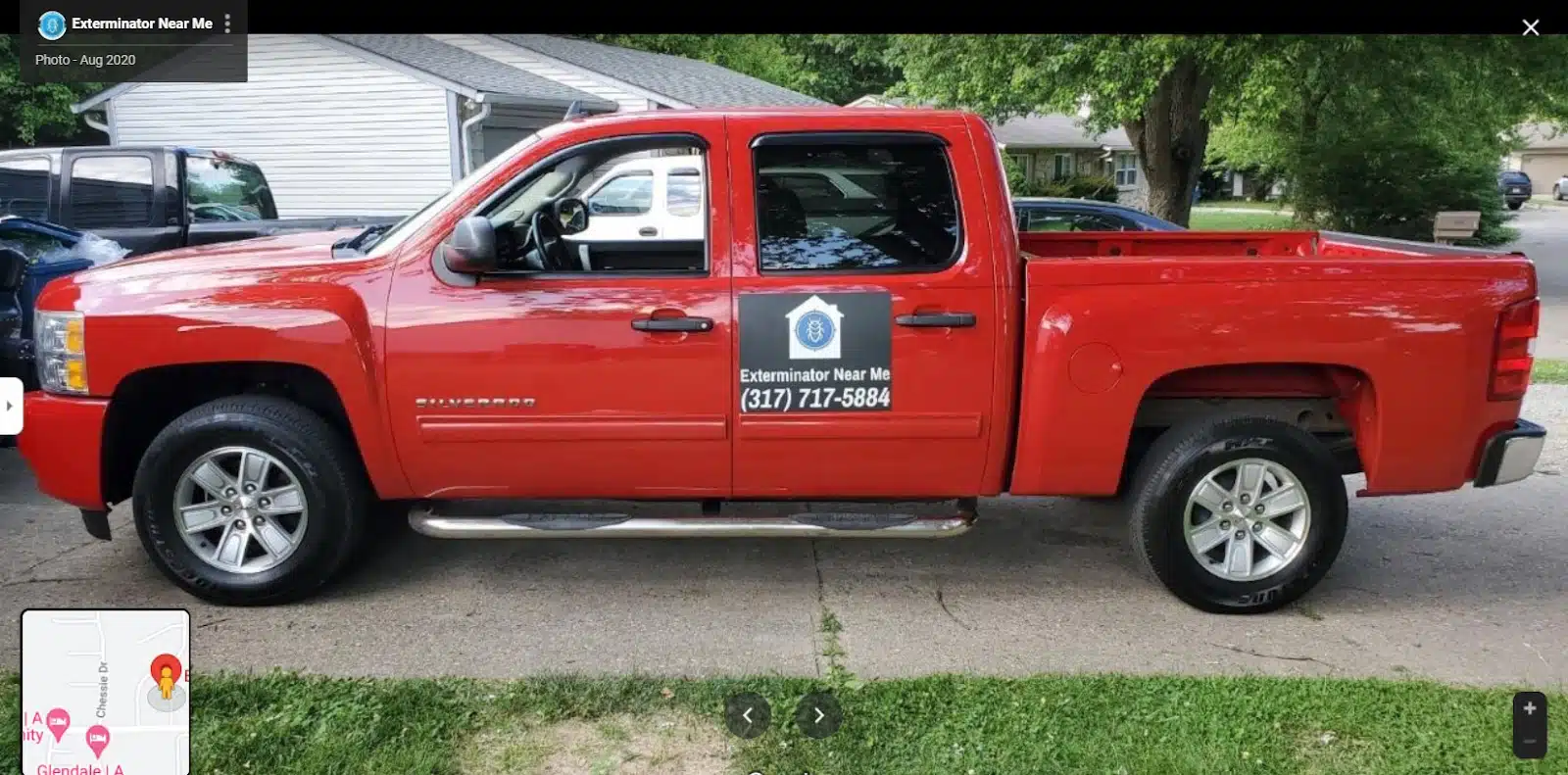
I’ll take some of the blame for this.
In the distant past, I jokingly promoted some “extreme local SEO tactics” – such as the infamous advice to “change your business name to include a few of the top keywords that users type into search engines when seeking your type of business in your area.” (This was not against the rules at that time, by the way.)
I also had blogged some “ultimate local SEO tactics” which included the idea of having streets named after one’s company, or even having a city or country named after one’s company or brand name!
Part of the point of these joking articles was to educate people as to how Google, and Google Maps search, relied so heavily on literal keyword matching that finagling of keyword optimizations could hotwire a company into appearing more prominently for local business searches.
Google has finally figured it out
Around 10 years ago – when it became clear that consumers were increasingly searching for local businesses while combining the phrase “near me” in their queries – I wondered why Google did not engineer special handling for the phrase.
I asked a Google Maps representative about this issue and was told they had many things on their development priority list – but this was something they would likely get around to.
Well, it seems that Google finally got around to it.
Google has made it now so that a “near me” query will return the closest matching local businesses for one’s search terms within the Maps/Local listings. To do this, Google clearly extracts the “near me” portion of the user’s query and matches the remainder of the query with businesses and websites it believes are closest in location proximity to the user. This handling negates the efficacy of performing keyword optimizations with “near me” phrases for Google Maps/Local search.
Local ranking showdown: business name vs. proximity
I saw this was happening anecdotally, but after locating a number of the businesses pictured above to investigate how they were ranking in their localities for “near me” search phrases that exact-match their business names, the results are striking.
When searching with a Dallas IP address for “ER near me,” 11 businesses come up in the Maps results before a listing for the “ER near me” business is listed. By contrast, searching for other businesses in the list by name results in them being displayed first in the list, and sometimes by themselves in the results.
Searching for another generic-sounding brand by name, “ER of Texas,” produces results listing two of their locations first in Google Maps, followed by other businesses interspersed with more locations for “ER of Texas”.
This is what makes the results for the “ER near me” searches interesting – if Google determined that query was likely a business name search, their listing would come up first in the list.
This dynamic is truly striking. Google has done a lot of work to try to feature a business’s listing first in the search results for its exact brand name search. This is being negated for those listings with “near me” in the business names.
There is a caveat for ranking for the name search if the name appears to be spammy (such as those with keywords crammed in). One could conjecture that the businesses with “near me” names could be treated as keyword-stuffed, which would then negate their keyword benefit. However, I found that they can still rank for the “near me” queries – it’s just dependent upon proximity to the searcher.
Testing for “dentist near me” searches in El Paso in Google Maps, I found a hundred lists in Maps and gave up – the business named Dentist Near Me did not show up when using an IP address location associated with the downtown area of El Paso.
However, the business is located on the eastern edge of town, and by changing the browser’s IP address to a location much closer to that address, I was able to get the Dentist Near Me listing in the fourth organic position in Maps. “Locksmith near me” in Miami was in the 16th position.
Searching for “Sushi near me” in Los Angeles likewise did not return the business with that name in the first three search results. Searching for “Boxes Near Me” in Phoenix produced the business’s listing in the fifth position. The “24hr Locksmith Near Me” was in the 24th position in Maps for a “locksmith near me” search in Jacksonville. Search for “Exterminator Near Me” in Indianapolis placed the business’s listing in the 56th position.
“Custom Signs Near Me” in Denver seems to be an exception to how this is working. But, I believe that is largely because the business is located near the centroid of Denver, and there are few other custom sign businesses that close to the center point.
Switching to a search from Lakewood, which is smack next to Denver, moves the listing’s position down a number of slots. It also could be that “custom signs” might be less-recognized as a business category than “sign shops” by Google. Performing a “sign shops near me” search in Denver places the business’s listing down at the fifth position. It is likely the business only ranked prominently due to its location near the city’s centroid – not because of keyword optimization for “near me” in its business name.
While searching to find examples of businesses with “near me” in their official names, I ran across a great many more instances that are fake business names and locations. A number of companies have created additional listings in Google Maps for “_______ near me” names. These often use the same exact address as their regular business, perhaps expecting consumers to search “near me”, see the location, and arrive in a hypnotized state to walk into the business with the real brand name signage.
The three listings I show above from Manhattan (a locksmith, a moving company and a massage provider) potentially could be fake listings. In many cases, some “near me” listings appear to be completely fake, appearing for service area businesses, and once you view their pinpoint locations they are next to police stations, under overpasses, next to parks or next to shared workspace locations. Predictably, these listings are for moving companies, locksmiths, roofing contractors, plumbers and the categories of businesses that have long been rife with fake listing issues.
Now, for the real “near me” businesses I documented, a number of their websites did appear prominently in the regular, keyword search results outside of Google Maps – often in the first organic position, but not always.
The “near me” keyword optimization does appear to still work there, and there may be some level of value to that in terms of referral traffic. But, experience indicates that the greater value was to be had in Maps search.
Many consumers seeking a local provider are conducting searches directly in the Google Maps app, and those will see other businesses the majority of the time for “near me” searches, and not these over-optimized companies.
Google itself indicates that consumers are showing local intent with these queries, because every one of the test queries reflected blended search results with the Maps 3-Pack at the top, before regular keyword search results.
Is ‘near me’ optimization a detriment to businesses?
When those of us in local SEO first began recommending keyword optimizations for “near me,” there was some light criticism that the keyword optimization was difficult to incorporate on websites and directory listings in a natural-looking manner. But doing so, by adding it into business names, is far more of a smack-you-in-the-face option than merely including it in some isolated paragraphs, page titles and headings.
Incorporating it into business names seems likely to detract from building a non-generic-sounding brand.
While including valuable keywords in a business name can often have a synergetic value if done well, these near me brand names seem to be brute-force functional search marketing above all other marketing and brand-building considerations.
Some would undoubtedly call these brand names spammy-sounding. I think these would not work as well for word-of-mouth marketing or repeat business.
Because Google is now using the “near me” parts of users’ queries as a type of proximity indicator, rather than a literal keyword matching phrase, the use of this in brand name optimizations is arguably a serious disadvantage at this point.
Customers inclined to use a business again will often search online by business name, and if they do so in Maps they will have a lot of trouble finding these businesses because Google’s functionality is now damaging their ability to rank well for their brand name searches.
I do not believe this is necessarily any sort of a penalty. Google simply determined that the “near me” queries are far more frequently consumers’ expressions that they desired to get the specific types of businesses nearest to their physical locations rather than businesses with names that match “near me” queries.
For established businesses, one of the top types of search queries that will refer traffic over time is brand name queries. Whereas using “near me” in brand names may have paid dividends in the past, the tactic is now a major detriment to a local business’s online strategy.
A gimmick whose time has passed
The Think With Google article that references the 400% YOY growth of “open now near me” searches advised businesses to optimize for local to capitalize on those queries. Google didn’t provide instructions on how to do that.
However, I believe this optimization should no longer mean the inclusion of “near me” keywords, in the web marketing materials, much less should it involve hotwiring the business name to include the “open now” and “near me” phrases.
Optimizing for this will mean updating your hours of operation, truthfully, in your Google Business Profile, and including all the address and location signals in your online collateral materials to make your location signals very strong.
Proximity to the user isn’t the sole criteria. Optimizing for prominence signals is vital (e.g., volume and velocity of reviews, having other websites mention and link to your business website).
Bottom line: Any benefits of Incorporating “near me” in your business name are largely canceled out by the disadvantages.
Contributing authors are invited to create content for Search Engine Land and are chosen for their expertise and contribution to the search community. Our contributors work under the oversight of the editorial staff and contributions are checked for quality and relevance to our readers. The opinions they express are their own.
Related stories
New on Search Engine Land